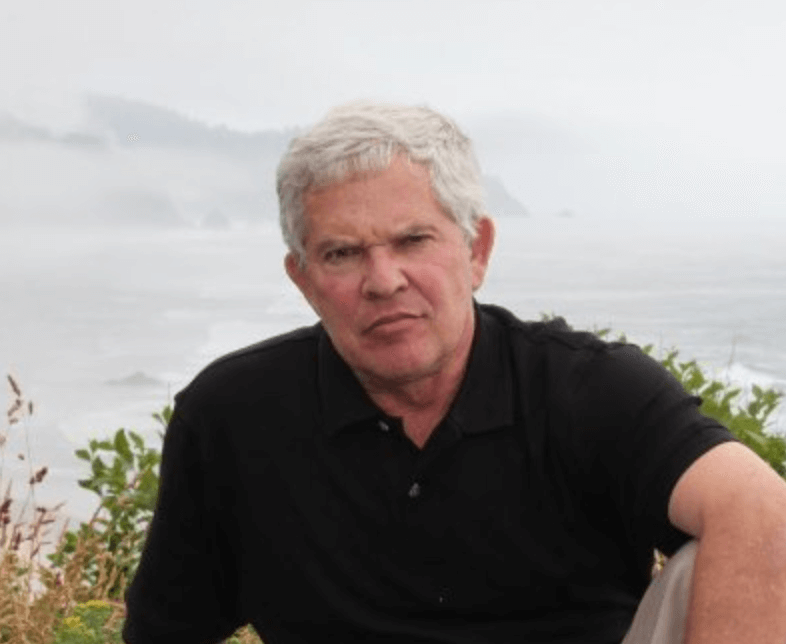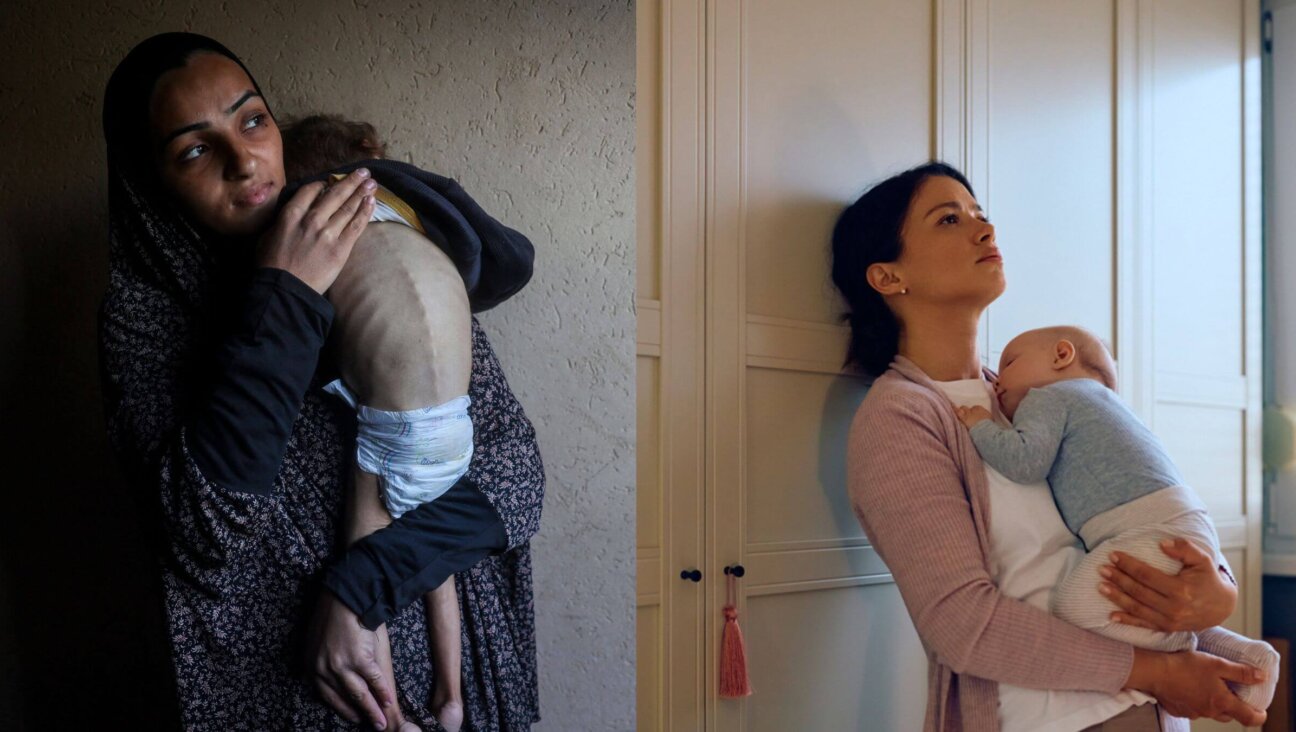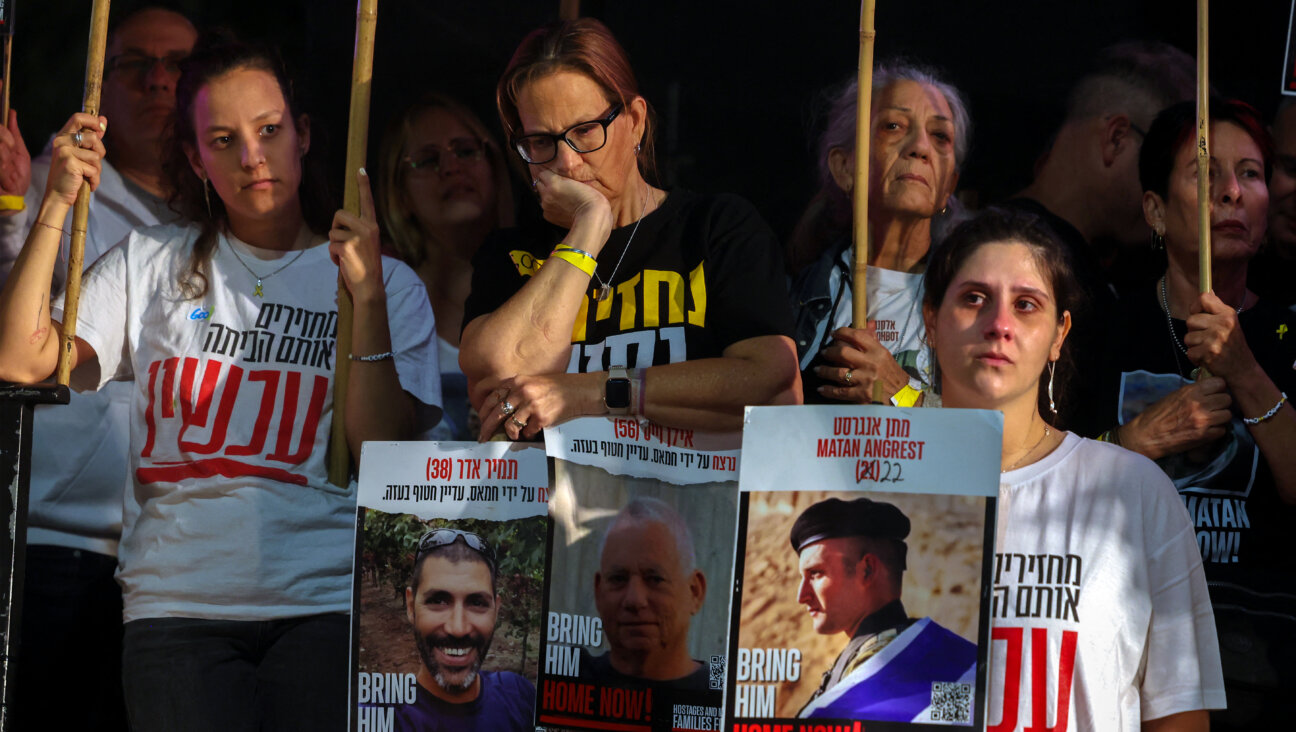My friend David Lehrer died when we need him most
Remembering a longtime Jewish activist and ADL leader from Los Angeles

Graphic by Angelie Zaslavsky
In the midst of so much death in Israel and Gaza, a loss much closer to home struck me and other Jews in Los Angeles especially hard: David Lehrer, a veteran leader and activist, died Wednesday at his home in Los Angeles.
Lehrer, at 75, appeared to be hearty and vigorous, and his unexpected death — the cause has yet to be determined — came as a blow at a time when so much is at stake for all the things David cared most about: Israel, civil rights, civil debate and democracy.
“David was someone I never considered dying,” Larry Mantle, a local public radio host, said in a moving tribute on his show, AirTalk, “His life force was too strong. The need for his work in our community too great.”
I first met David more than 30 years ago, when he was the Southern California regional director and counsel of the Anti-Defamation League, where he worked for 26 years. At the ADL, David had drafted California’s first hate crime laws, helped lead the legislative efforts to outlaw tax-subsidized discriminatory private social clubs, and exposed extremist groups across the West.
Then, to the dismay of many, Abraham Foxman, ADL’s then CEO, fired him. The Jewish Journal of Los Angeles, where I was editor and publisher, wrote a cover story investigating why.
David called me, thankful that a community paper would dare publish an article that contained sharp criticism of Foxman, then one of the most influential American Jews.
I soon learned that challenging authority and sticking to one’s principles were qualities David admired most — and probably what got him fired.
After the ADL, David went on to found Community Advocates, Inc. with his friend Joe Hicks, the former director of the L.A. chapter of Southern Christian Leadership Conference. Community Advocates held public forums and debates on civic issues — affirmative action, Black-Jewish relations, economic development — in a city that, to David’s constant disappointment, lacked a culture of civic engagement.
Maybe because a defining career moment was standing up to his own boss, David loathed institutional cowardice. After Donald Trump was elected president, he waited for Jewish leaders to speak out against his anti-Muslim and anti-immigrant rhetoric.
“They’re keeping their mouths shut because they think they’ll have more influence,” he told me. “It never works that way.”
Seeing a void in Jewish leadership, David co-founded Jews United for Democracy and Justice to be a forum for important issues Trump’s presidency raised. During the pandemic, its “America at a Crossroads” weekly online discussions of topical issues with experts, regularly draws thousands of viewers.
The success of the “America at a Crossroads” confirmed for David that there was a Jewish audience for serious, thoughtful discussion about the dangers Trump posed. When I interviewed him for a 2021 story about his new organization, he found, ironically, one exception to mainstream Jewish silence: the ADL.
“If we had a community that was more outspoken and engaged and had relations with more ethnic groups, I don’t know that we would have felt the need,” he told me about organizing the group. “Other than Jonathan Greenblatt at ADL, who was forceful and unambiguous about Trump?”
David and I emailed often and lunched occasionally, usually at the famous Langer’s delicatessen. He’d have a whole pastrami, and I’d eat tuna, and wonder aloud if he wasn’t worried about his cholesterol. He pointed out that his mother Trudy, a Holocaust refugee, lived to 103.
It was a convincing piece of evidence, and evidence mattered to David, a Phi Beta Kappa graduate of UCLA, where he also received his law degree. He was a liberal, but far from an ideologue.
For a June 2023 op-ed in the Forward that took issue with a knee-jerk defense of affirmative action, he presented statistics showing California admissions policies that focus on socioeconomic disadvantages rather than race are better at creating an “upward mobility machine.”
He loathed hypocrisy, on the right or left. While he defended the civil liberties of American Muslims — he suspected that was a reason for his dismissal from the ADL long ago — he sharply criticized Muslim leaders who appeared to rationalize terror. In another column for the Forward, he praised the courage of Kareen Abdul-Jabbar for standing up to antisemitism in the Black community.
“It is difficult to overstate the courage that it took for Kareem to write the column that he did,” he wrote. “Choosing to take a stand against a member of your own tribe can be especially fraught.”
David himself rejected the idea that American Jews were always, somehow imperiled by antisemitism. Early on in our friendship, he drew my attention to polls and statistics that showed increasing acceptance and integration of Jews in American life. The facts, he wrote, didn’t support the fears.
David’s fearlessness was bracing. If I took a controversial position in a column, he would be among the first to email an appreciation. A simple, “Well said,” from David made my day, and taught me that it’s as important to boost up your allies as it is to confront your opponents.
Perhaps his optimism came from his family history. His mother, Trudy, after being chased out of Vienna by the Nazis, met his father, Irving, in Los Angeles and created a large, warm and successful family that gathered together almost every Shabbat. It was easy to understand David’s belief in America, and to see why he wouldn’t give up on it.
David’s voice cries out now. He would be railing against many on the left who by placing all the blame on Israel have become the useful idiots of Iran and their proxy Hamas.
And he would be railing against the self-righteous right, who for years, despite the warnings of liberal Zionists like himself, continued to defend an increasingly militant, rejectionist Israel.
David had no illusions about Israel’s enemies, but always maintained that Jews today, unlike Europeans in his mother’s generation, had the power to shape their future.
I tuned in to “America At a Crossroads” on Thursday, the day after David’s unexpected death. It began with tearful comments from his co-organizer, Janice Kamenir-Reznik.
“We will figure out how to carry on,” she said, “without his brilliance, his energy, his beautiful smile, and his fetching enthusiasm.”
She’s right. I’m just not sure how.
























